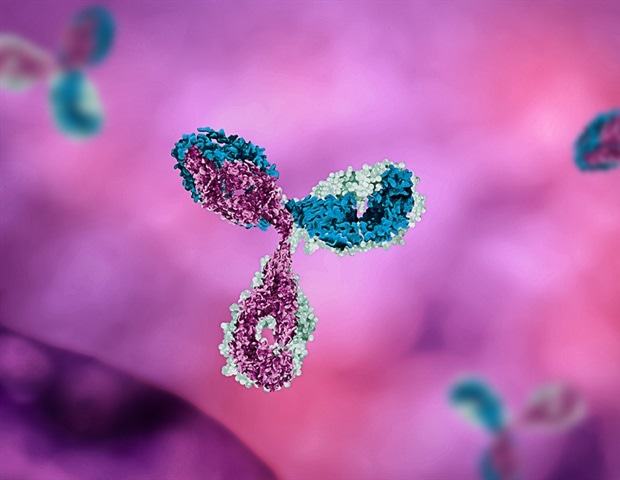Researchers in India say that data from a detailed genomic study of the dengue virus has helped them develop an mRNA (messenger RNA) vaccine candidate capable of neutralizing all four strains of the pathogen.
More than 100,000 cases of dengue are diagnosed in India each year, according to the researchers who analyzed gene sequences collected over six decades, from 1956 to 2018.
Dengue infections are caused by four related serotypes, or viral strains, namely, DENV-1, DENV-2, DENV-3, and DENV-4. These serotypes interact differently with antibodies — substances produced by the human body's immune system to deal with harmful, foreign substances called antigens — which makes controlling dengue complicated.
The study says that a first infection with one of the serotypes causes the body to produce antigens which may then adversely interact with another serotype to produce dengue shock syndrome or dengue hemorrhagic fever, a severe form of the disease that is often fatal.
Swetha Raghavan, a participant in the study, says she and Pratik Lakhani, a colleague at the National Centre for Biological Sciences, are readying an mRNA vaccine candidate for clinical trials as an alternative to existing dengue vaccines.
Existing vaccines against dengue make use of live attenuated versions of the dengue virus across the four serotypes, whereas mRNA vaccines work by 'teaching' cells how to make copies of viral protein so that the body can recognize and fight off future infections with similar viruses.
Also, according to the study, "existing vaccines are based on old dengue isolates from outside South Asia and it is unclear whether they will work against dengue viruses circulating in India".
Raghavan explains: "Our attempt at making a vaccine for India looks at nucleic acid-based approaches (mRNA) as a viable alternative, and genome sequencing data from the study plays an important role."
Since 2000, a number of genotypes have been prevalent in India, according to the study published April in PLOS Pathogens. A genotype is the genetic makeup of an organism and refers to the specific information encoded at a given position in its genomic sequence.
The most dominant were genotype III of DENV-1, cosmopolitan genotype of DENV-2, genotype III of DENV-3 and genotype I of DENV-4.
Our analysis highlights the co-circulation of all DENV serotypes in India with cyclical outbreaks every three to four years.
DENV3 was dominating in North India, especially in the Delhi region in the early 2000s, followed by DENV1 (2008—2011) and DENV2 after 2012.
In South India, all serotypes have been detected but DENV4 has become quite prevalent in recent years."
Rahul Roy, study author and associate professor of chemical engineering, Indian Institute of Science, Bangalore
According to Roy, there are both temporal as well as regional variations of the four serotypes in India with some variants like DENV4-Id unique to the country.
While primary infection by any one DENV serotype usually results in mild flu-like symptoms and provides lifelong immunity against that particular serotype, numerous epidemiological studies show that infection by different serotypes can cause dengue shock syndrome or dengue hemorrhagic fever through what is called Antibody Dependent Enhancement (ADE).
Lakhani explains that during a secondary infection, the antibodies produced by the body against the primary serotype do not neutralize the secondary serotype.
"As antibodies are present at sub-optimal concentrations but lack neutralizing ability they aid increased uptake of the non-neutralized DENV and this is termed as ADE," says Lakhani.
According to the study, apart from not providing sufficient protection against dengue infection, some vaccine candidates can even lead to enhanced disease through ADE upon subsequent infection.
Lakhani says that the first or primary infection does provide cross-protection against other serotypes the immunity only lasts for two or three years, after which ADE can develop.
"DENV4 Id has now become the predominant serotype in South India," says Lakhani. "It has evolved in such a way that it is becoming more closely related to DENV1 and DENV3.
"If DENV4 Id, the strain newly evolved in India, is the cause of secondary infection then it can cause severe disease transmission."
The study found that at least 50 per cent of infections in South India are now of the DENV4 Id lineage.
Gautam Menon, dean at the departments of physics and biology at Ashoka University, says that the study illustrates "how genomic surveillance, coupled with a better immunological understanding of how infection by one serotype can influence the course of a later infection by another, can be a powerful tool for public health forecasting".
SciDev.Net
Jagtap, S., et al. (2023). Evolutionary dynamics of dengue virus in India. PLoS Pathogens. doi.org/10.1371/journal.ppat.1010862.
Posted in: Medical Research News | Disease/Infection News
Tags: Antibodies, Antibody, Fever, Flu, Forecasting, Gene, Genetic, Genome, Genomic, Genomics, Immune System, immunity, Nucleic Acid, Pathogen, Protein, Public Health, RNA, Syndrome, Vaccine, Virus
Source: Read Full Article
